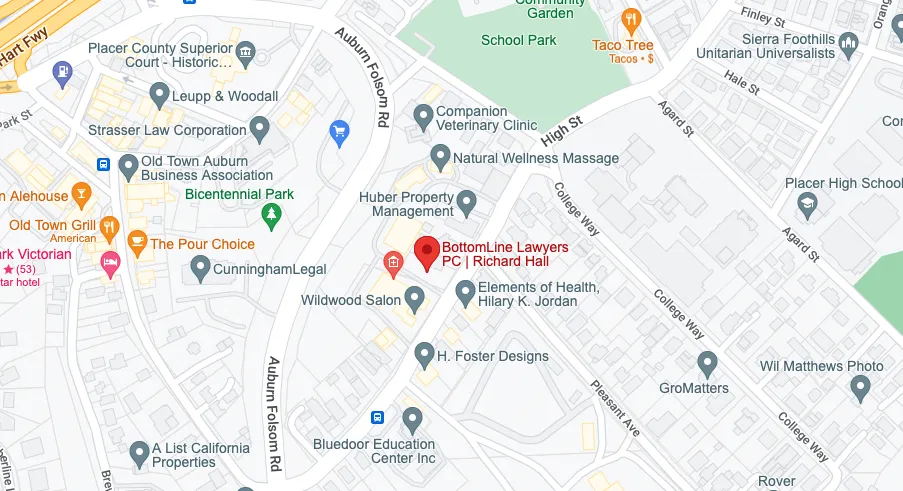Studies show that over 95% of all lawsuits are resolved without a trial. Thus, the overwhelming probability is that a new case will settle. For that reason, much of a business litigator’s job is getting a case into a position that will enhance the possibility of a favorable settlement. Generally, the earlier the case can be settled, the greater the economic benefit.
Even though most cases settle, the attorney still must fully prepare your case for court. Inadequate preparations dramatically undermine the chances of achieving the best settlement.
SETTLEMENT CAN PROVIDE ADDITIONAL OPTIONS
A negotiated settlement can provide opportunities that would not be available through a trial.
In a court case, the remedies are usually limited to an award of money. But in a negotiated settlement, one party might be able to make business concessions to the other party in order to reach a mutually satisfactory resolution. And even when the exchange of money is the only possible solution, settlement can afford arrangements such as paying out the judgment over time, perhaps with agreed collateral to secure the payment.
SETTLEMENT CAN MAKE FINANCIAL SENSE
A major factor influencing settlement is the avoidance of the expense of litigation. As a case moves on toward trial, the expenses increase exponentially. When an attorney charges by the hour, an early settlement will materially reduce the legal fees.
Furthermore, for the plaintiff, the present value of cash in hand is greater than an equal sum received in the future.
WHEN IS A CASE LIKELY TO SETTLE?
It’s impossible to predict. Some of the key times when business disputes are more likely to settle are:
• Before or shortly after a lawsuit is filed. Typically, these are smaller, simpler cases in which the defendant’s liability is clear and the damages are modest. Alternatively, one or both parties may be eager to preserve the business relationship because they have other deals in place or pending or few alternative business partners. If the defendant is covered by insurance, it may be possible to negotiate a settlement with the insurance adjuster.
• At the conclusion of court-ordered or mutually agreed-on mediation.
• After the plaintiff’s or defendant’s deposition has been taken when each attorney can see how strong a witness the opposing party will make.
• After discovery has been completed when each side has a good idea of the other’s evidence and the attorneys can make an educated prediction about the likely outcome of a trial.
• On the eve of trial when facing the last chance to avoid the expenses and risks of trying the case.
• After the plaintiff presents a strong case, when the defense anticipates a large verdict in the plaintiff’s favor.
• After a verdict to avoid the delay and expense of an appeal.
Gathering Evidence of Damages
The injured party will need to conduct a detailed inquiry into the financial losses sustained. To make the strongest case for damages, the injured party will want to provide the following information:
The nature of the business or business opportunity.
• How does the business work? Where do its profits come from?
• Examples of other similar businesses, particularly competitors.
• The best sources in publications or on the Internet for understanding the type of business/investment. • Source of involvement in the business/investment?
The past financial history of the business or past track record of similar businesses or opportunities.
• Financial statements (i.e., balance sheets, profit and loss statements, and cash flow statements) for the business/investment for the past several years.
• Tax returns for the business/investment for the past several years.
• The track record of this business, in terms of revenues, expenses, and profitability over the past few years.
• Average profitability numbers of other businesses in this industry.
• How the business/this opportunity differs from the industry norm and why.
The basis for projecting future profits or value of the business.
• Future profits/business value anticipated before the problem arose.
• How those expectations were calculated. Were there written projections? Who prepared them?
• What assumptions were these projections based on?
• Information that led to this business/investment.
• What specifically stopped these projections from being realized?
• In retrospect, what other than the potential defendant’s conduct would have made any part of these projections unrealistic?
Any consequential damages that have resulted from the business loss.
• Beyond the loss of profit/business value itself, how else has the potential defendant’s conduct created problems for the business?
• What additional problems might occur because of this?
• Can a dollar figure be attached to these other problems?
• How was the cost of these other problems calculated?
Investment in the business or business opportunity.
• How much was invested in this business/opportunity?
• Where did these investment funds come from?
• When were these funds invested?
• What, if anything, has been paid back in some way, through profits, reimbursement, or otherwise? When and how much?
• Is any money owed because of this?
• What kinds of documentation exists that reflects the investment in the business?
Ideas about total damages in the case.
• Any ideas about the total financial losses might be from this problem.
• How was that number/range computed?
• Are these idea
s about losses in writing?
• Are there any documents used as a source of information for calculating these losses?
• Have these losses been reviewed with anyone, such as an accountant, financial advisor, or business partner? Are there documents from that review?
• Are there types of damages thought about but difficult to quantify?
What is known about the insurance or solvency of the potential defendant.
• What is known about the potential defendant’s financial condition?
• Has any written information been obtained about the potential defendant’s finances?
• About the potential defendant’s insurance?
• Might any plaintiff’s insurance provide coverage for this loss?


